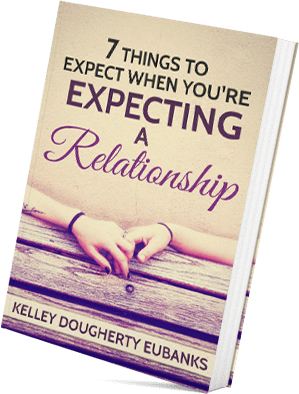When I was working in the agency world, I rarely was able to do intake assessments. The agencies where I worked took specific insurances and those insurances had very specific requirements. There were people who qualified the clients then brought them in to do an intake.
The one agency I worked at had us conduct intakes, but they were more about the paperwork, which I can appreciate but did not find to be helpful. Now that I am on my own running my own therapy practice, I have come to value that initial phone call.
A piece of it is selfish because I took over a year working on the marketing and SEO for my company and I get really excited to see it working.
I want to know how my clients found me and what made them want to reach out.
Business owner “nerdiness” aside, the intake process is so fascinating.
Working with couples, I am introduced to one partner with the initial phone call. Despite popular belief, that initial phone has been made more by men than by women in heterosexual relationships.
I usually ask for a general idea of what makes them want to come to therapy. Here is where I learn how dire one person in the couple sees the situation, which if a man is calling, my experience so far has been not too dire.
The men who call are able to articulate their needs and wants very well. If the woman calls, I tend to get more information in the initial call and more often than not, a piece of that information includes her telling me that her partner is not too excited about therapy.
Coming from the lips of a therapist, this is very important information to share.
We live in a culture where talking about our feelings is not something we are even remotely used to doing. My years as a crisis therapist has taught me some different things about trust in therapy.
I will never be able to convince anyone to change, nor do I want to do that.
I feel my responsibility as a clinician is to create a space where you trust me. Businesses run and become profitable not because they were shady and did things backwards.
They become successful because the people who run it create relationships built on trust.
My husband’s business is successful because he is able to establish a relationship with someone and then use his knowledge to show how he can help that person. That person then has to decide to take a leap, pay him some money and trust that he will help their company grow. The same tenets apply to therapy.
How do I gain trust especially when I know someone does not really believe in therapy?
Presenting myself as a professional is first and foremost. I have taken every step I can to create an office space that is warm and inviting.
I focus on appealing to various senses when you are in my office. Some people may not fully understand my mentality, but walk into a therapy room that is too dark, or too bright, or smells too much of incense, or that has furniture from a yard sale that has stains everywhere and tell me that that space makes you feel comfortable.
The experience my clients have in my office space is important to me because trust is about the space: the physical space and the emotional space.
When I know someone is not too keen on therapy, the emotional space I create needs to feel structured. While I have a handful of clients who can walk into my room, spill their guts, then trust me to sift through the mess of emotions to help them sort things out, I have a handful who don’t know where to start. These people are typically those who don’t think therapy is for them.
My structure is simple, yet complex.
I give a little speech to my newer more hesitant clients about my philosophy of therapy.
I don’t want you as my client for years.
I want us to come up with some concrete goals and then I want to have several conversations about those goals.
I want us to see each other weekly, then every other week.
I want you to rely on me for support but then get to a place where you reach out to everyone else but me.
It feels counterintuitive to many mostly because our culture portrays therapy as a lifelong commitment. For some, continued care is needed, particularly those with significant mental health issues.
For most, therapy can be more short term, more solution focused (even though I do not subscribe to solution focused therapy models).
What I have found that surprises my clients the most is that I need to see fights.
This, again, takes trust which I build over a short amount of time. I validate both partner’s feelings as they talk about what has been going on between them. I normalize their feelings because 9 times out of 10 someone else has gone through the EXACT same situation.
I encourage couples to do things their way. No one loves the same way, no one fights the same way…most people fall into patterns though. I work on figuring out the pattern after I learn about the couple’s history (independent and together) as well as figuring out the level of emotional intelligence, problem solving skills, and overall mental well-being.

So here is the general path I take broken down:
- Create emotional trust- ask about the clients’ situation, validate their concerns, build a foundation of knowledge and understanding by looking at family history, problem solving, etc.
- Start to test the trust by questioning the current pattern of interaction- I create a pattern of interaction that I see happen in session (it is an actual drawing I make…where the fighting helps). We spend several sessions going through the points of the pattern.
- If the trust is there, we move forward examining the pattern. Trust not there? We go back to understanding and knowledge.
- We create a new pattern of interaction based on healthy and mutually determined expectations.
- We take past experiences and apply them to the new pattern. This will help create space for healing from past traumas as well as lay a new foundation for a healthier relationship.
- The end!
Of course each couple is different which makes the path go in different directions. Some couples feel like they want to stop earlier than the path unfolds, which is always their choice.
I am hoping that if you were not too sure if therapy is for you, that you have a different mindset at this point.
Not all therapists want you as a forever client. Not all therapists practice in the same way or value the same things I value.
Therapy is a relationship and like all relationships you have to find the right fit.
As always, I recommend that if you are looking for relationship/couples therapy, look for someone with the “LMFT” at the end of their title because that means they were clinically trained and licensed to practice pretty much what I just laid out.
Yes, I am biased but only because LMFT’s are awesome.
I would love to hear your thoughts!



Share your thoughts